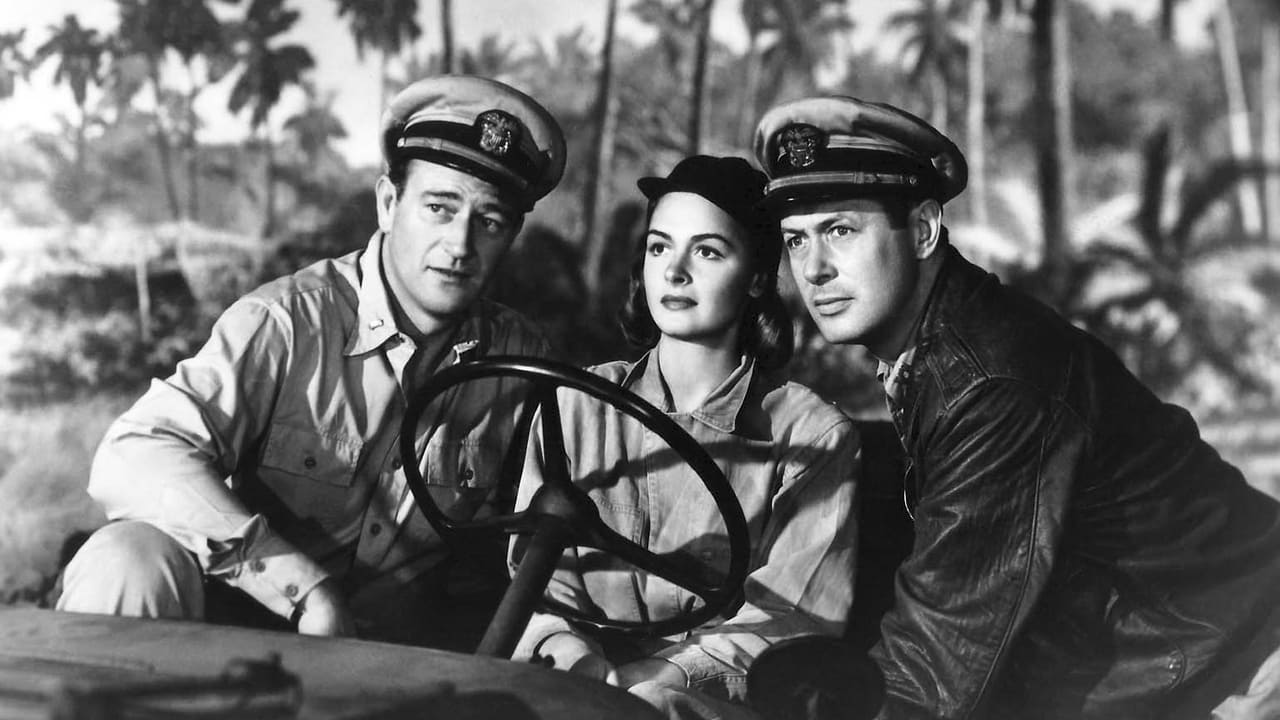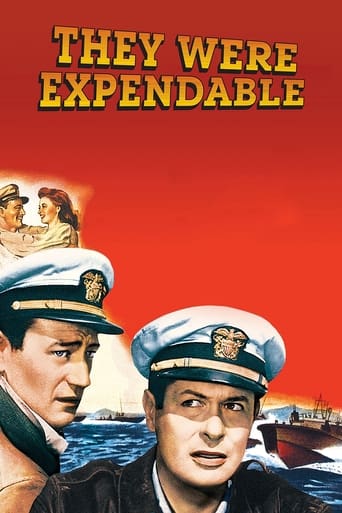

recommended
... View MoreFantastic!
... View MoreAt first rather annoying in its heavy emphasis on reenactments, this movie ultimately proves fascinating, simply because the complicated, highly dramatic tale it tells still almost defies belief.
... View MoreThe plot isn't so bad, but the pace of storytelling is too slow which makes people bored. Certain moments are so obvious and unnecessary for the main plot. I would've fast-forwarded those moments if it was an online streaming. The ending looks like implying a sequel, not sure if this movie will get one
... View More. . . perhaps the largest mass surrender of U.S. Troops occurred when a Yankee Territory on the fast track to statehood (as in, a getting its own star on our Stars & Stripes Flag) was overrun by the Japanese in 1941. The statehood idea was scotched when most of the POW's were killed. It's as if Geronimo had occupied Arizona 60 years earlier, and after he was dislodged the U.S. had backed away from such "vulnerable" Territory, allow Phoenix to become the Capital of its own Country. THEY WERE EXPENDABLE shows how such a debacle happened on a FAR LARGER SCALE during the 1940s. Up until losing everything due to poor planning, U.S. dollars were the actual currency of the Philippines, as they were in Panama when future Presidential Nominee John McCain was born there. But after the fighters of the tiny island Japan tore away so many chunks of U.S. Territory in the Early 1940s, only Alaska and Hawaii were allowed to become new states (since they were each attacked or occupied only briefly), and all Other Territories became expendable. Most of these, such as the Philippines and Panama, have been given away already--China plans on having the rest for itself shortly. Cynical film director John Ford uses THEY WERE EXPENDABLE to show that American women (represented here by Donna Reed) ALWAYS will be expendable, as well as the older members of any American Labor Pool, such as Gen. Martin, Maj. Morton, and Capt. Carter here.
... View MoreThis the first feature film John Ford made immediately after the Second World War, and, in the main titles, he is credited by his military rank. Although, the film is a deeply patriotic tribute to the little boats and the big men who were truly expendable in the larger picture, the film is notable for its unmistakable understatement. It is as if Ford, always given to cinema melodramatics in the name of a good show, somehow restrained himself, perhaps because the memory of what really happened, rather than what the establishment wanted its citizens to believe, was still very fresh in his mind. For once, he chose to tell the truth and not exaggerate. The performances from the starring roles to the bits are also particularly subdued and real. No false heroics. The handsome leading man and light comedian Robert Montgomery, who in real life was a PT boat commander, was never better. The mood of the film is enormously helped by the realistic semi-documentary cinematography of Joe August, whom Ford knew and collaborated with the early days of the silent cowboy film. August's lighting, often leaving characters in shadow or half-light, was very courageous for the time. Few big studio DPs, with the exception of Greg Toland, had the guts or the talent to avoid the clichés of big studio glamor lighting and try for something that looks at times very much like the documentaries Ford had made with his war-time naval unit. Today, Ford, one of the masters of the language of film, is often put down for his jingoism, but, as this film demonstrates, he was at his best a master story-teller and humanist.
... View MoreEvery time I read IMDb reviews or message boards, I am appalled at how much misinformation and ignorance I encounter. I am mystified about where some reviewers get their information and by what deficient process they form their opinions of a film's worth.If you want to know what reviewers thought back when a vintage film was first released, go to the online archives of newspapers such as The New York Times. In retrospect, the old-time reviewers were usually right on the money.To those reviewers who think They Were Expendable is sentimental, you're right. It's a John Ford film, after all. By all reports, John Ford was a dictatorial SOB who was a horror to work with, but he made great films. This is one of his best, if not THE best.To those reviewers who think this film is a fine portrayal of men's loyalty to their country and to each other in a truly tough time, you're right, too. And so are the reviewers who can crawl into the skin of the men who are portrayed here--in an impossible situation, without the ghost of a chance of relief, scared to death, and knowing that they are doomed.To those reviewers who find this film boring, I can only assume you don't know much about your own country's history. We almost lost that one. It was a scary time, with no good news anywhere.We are now at a stage in our country's history where there are no massive engagements such as World War 2, in which every family knew others in military service. When I was a little kid, almost every family on my street had a blue star service flag displayed in the window, and often a gold star flag indicating the death of someone in service. The war was emotionally close for a lot of people.The country hasn't been that way for a long, long time. I therefore assume that the bored reviewers are (1) young and have not experienced a time of genuine national emergency in which everyone was expected to sacrifice, and did; (2) are too conditioned by the way most recent films (which I see as boring) are presented; and (3) don't see that the story is everything. Luckily, these guys are in the minority. I just hope they don't reproduce.
... View MoreAfter so many years of reading about this fictionalized filmed account of the events of American sailors dealing with the invasion of Japanese forces in the Phillipine peninsula, I finally watched They Were Expendable on VHS today. With John Ford as director, we see a fine drama of the struggles after Pearl Harbor of the Navy men trying to stay one step ahead of what they referred to as the Japs during their maritime missions of battle. Robert Montgomery and John Wayne play the superior officers put in charge of many young men not quite trained for the enemy attacks though they pull ahead with their best foot forward, anyway. While quite serious, there are some subtle humorous touches not to mention a slightly touching romance between Wayne and Donna Reed as a nurse that effectively pulls at the heartstrings down to hearing Ward Bond and many of his shipmates sing in accompaniment while Ms. Reed, Wayne, and many of the officers have a quiet dinner in a tent. In fact, part of the time, I couldn't help thinking of a similar scene in my favorite movie-It's a Wonderful Life-when Bond also accompanied with Frank Faylen on the song "I Love You Truly" as Ms. Reed and Jimmy Stewart were kissing on their honeymoon! And the battle scenes were some of the most exciting at the time. So on that note, They Were Expendable comes highly recommended.
... View More